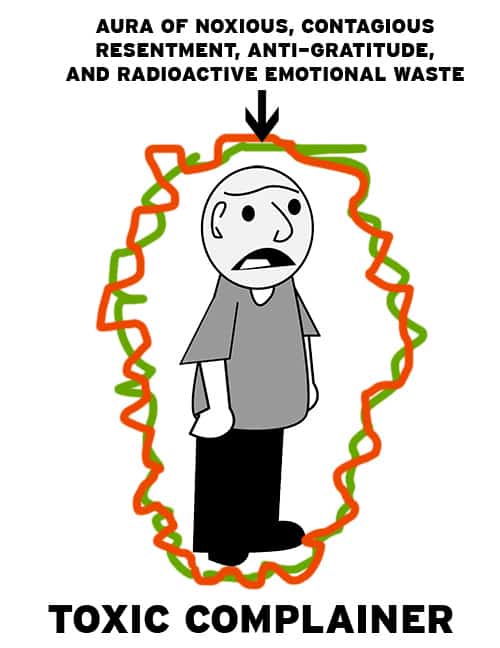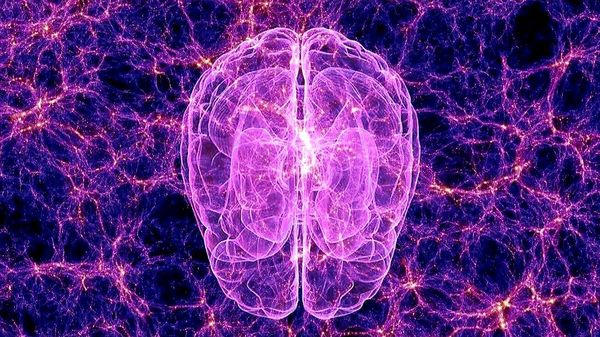Jordan Bates • • 9 min read
Resentment is Corrosive Acid Eating You From Within

“Resentment, born of weakness, harms no one more than the weak person himself.”
― Friedrich Nietzsche
Many people are extremely resentful.
You can feel it in their words and tone, both online and in the ‘real’ world.
Such people complain often. Their tone is hostile and bitter. They’re quick to blame others. They’re always outraged about something. They tend to shit on other people’s efforts to do or create things without ever doing much of anything themselves.
Online, they’re conscious or unconscious trolls, often found in threads or comment sections on Twitter, Facebook, YouTube, and most any other fairly large site across the web.
I do my best to avoid such people, but inevitably I encounter them regularly anyway, given my line of work.
Over time I believe I’ve become unusually empathic when it comes to detecting resentment in people, and honestly, I experience this sort of vibe as poisonous to my health.
I think it’s vital to empathize with resentful people—to realize that they’ve likely been through a lot of shitty circumstances and that it must be awfully painful to carry around so much resentment. Yet, at the same time, I think it’s also important for one’s own self-care and sanity to limit the amount of time one spends with such people.
Resentment as Toxic Poison
When I read resentful comments online or am in the proximity of resentful individuals in the meatspace, I experience physical symptoms such as a clenching in my stomach or chest, and I feel like an invisible emotional magnetism is repelling me from the resentful person.
I don’t think this is a mere personal idiosyncrasy. I believe resentment is akin to radioactive emotional waste, and I think my heart intuitively knows to minimize the time I spend around those who are steeped in it, lest I absorb too much of their energy.

Resentment is corrosive acid that gradually eats away at you from within, transforming you into a cold shell of a human being whose default reaction to everything is to scoff, dismiss, lash out, or worse.
I’m sure you can think of someone who’s basically just permanently cynical, bored, sarcastic, and/or hostile. This person is likely depressed and self-hating because they’re lifeless inside. They’ve done so much resenting that they’ve lost the ability to sincerely appreciate, express love, and share connectedness. It’s heartbreaking to consider the sort of Hell such a person lives in.
One of Dr. Jordan Peterson’s life rules is, “Do not allow yourself to become arrogant or resentful.” Dr. Peterson has wisely pointed out that many of the worst human atrocities are driven by the most extreme forms of “resentment-filled rage”:
“The motivation that drives the commission of the worst human atrocities is an inevitable social consequence of the refusal of the self-conscious individual to make the sacrifices appropriate to establishing a harmonious life, and their consequent degeneration into a kind of murderous and resentment-filled rage propagating endlessly through its variations in society until everything comes to an end.”
So, not only will resentment transform you into a cold, depressed, angry, miserable version of yourself, if you take it far enough it may actually lead you to do disgusting things to other people because you hate everything so much. Sounds fun, eh?
How Does One Become Resentful?
So we’ve established that harboring resentment is not a good idea if you want to be happy, grateful, successful, peaceful, pleasant to be around, etc.
It might be helpful, then, to know where resentment comes from, so as to hopefully avoid playing out the common scripts that lead people to the Hell of Resentment.
This is a complex question, but here are a few things that I believe contribute to the accumulation of resentment:
- (Childhood) trauma. This is probably the most valid and common reason to be resentful, but the resentment will poison you just the same. If something really shitty or fucked up happened to you, I’m deeply sorry; life can be intensely difficult. I feel for you and wish I could give you a long, deep hug. Unfortunately, nothing can change the past. But you can heal and change the future, by doing whatever possible to let go, forgive, and release the emotions. This guide to trauma will give you more ideas for how to do this. Therapy, spiritual practices, and plant medicine work are all effective modalities for healing trauma.
- Habitually ranting or complaining about reality. To do this is to engage in a self-reinforcing loop of conditioned misery. You’re training yourself to view everything as insufficient.
- Being quick to blame and slow to forgive. These sorts of habits, along with complaining, are probably often inherited from our families, but that doesn’t mean we need to keep acting them out. To blame is often to deny appropriate self-responsibility and project your own shadow onto others. And “Heaven is a place we make by forgiving mistakes we make,” as the wise rapper Offsite once said.
- Being overly plugged into the “news” and social media. If you’re unaware, media outlets play on your emotions, constantly showing you content that will elicit fear and anger, because these strong limbic-system emotions result in more people clicking and spending more time scrolling the companies’ websites, generating more ad revenue. Our nervous systems did not evolve to handle the overload of tragic news we’re feeding ourselves in 2018; be rigorously mindful of your info diet. Your attention is your most valuable resource.
- Refusing to accept responsibility for your life. This relates to the passage from Jordan Peterson I shared earlier. Life is hard. It demands a certain amount of hard work and sacrifice from most all of us. It’s actually deeply rewarding to take ownership of your life, put in the work, and make the appropriate sacrifices, but many people refuse to do this. Instead, they choose inaction, devise endless excuses, blame others for their difficulties, and wind up stewing in resentment.
- Modern life is simply alienating. Modern urban environments and lifestyles leave many of us feeling profoundly disconnected. We live increasingly solitary lives in highly mechanized environments, surrounded by screens and other supernormal stimuli. This is highly unnatural for the human animal, and if you’re not proactively maintaining connectedness, you might just gradually become depressed and then decide Everything Is Terrible and nothing is worthwhile.

Art by Antoine Geiger
These points should, at least, give you a pretty good model to work with when it comes to understanding where resentment comes from. Hopefully, they’ve also given you some scaffolding for beginning to think about how to proactively prevent resentment.
But what if you’re already resentful as hell?
I’m glad you asked.
Antidotes to Resentment
Now that we understand how shitty resentment is and where it comes from, let’s talk about how to cure (and shield yourself from) resentment.
Here are several of the best methods I’ve come to understand:
- Gratitude. No matter what route you’re taking to cure resentment, feeling gratitude is a clear sign that it’s working. Resentment melts away in the presence of gratitude, love, and understanding. You can actively practice gratitude by keeping a gratitude journal or undertaking a challenge like our Amor Fati challenge within our self-actualization obstacle course (this link gives you 20% off).
- Understanding and Forgiveness. Once more, forgiveness is truly Divine. If someone has wronged you, remember that you’re only burning yourself from within by holding onto the hot coal of resentment. Aim to understand why the person did what they did, and do your best to forgive them for being a flawed human being.
- Entheogens. Entheogens/psychedelics have tremendous potential as a resentment-melting modality. Their ability to act as a “sacred reset button” for the mind and to reactivate forgotten joyful and grateful parts of the psyche is arguably unparalleled in comparison to any other known therapeutic intervention. Of course, these tools are immensely powerful, so it’s essential to use them wisely, in the proper frame of mind and context (see the “6 S’s” of psychedelic use), such as one of our Apotheosis retreats.
- Connection and Love. “At the touch of love everyone becomes a poet,” Plato wrote. Falling in love or simply forming deep platonic connections can, I think, effectively melt away a lot of resentment. For those low in resentment, truly loving, seeing, and empathizing with resentful people can help dispel their resentment. If you have difficulty finding meaningful connections, consider going to some MeetUp or Couchsurfing meetups centered around interests of yours; or again, join us at Apotheosis—each one is like a Love Supernova.
- Nature. There is a sacred peace in the natural world that is utterly unlike the typical vibe of the man-built world. In nature, the default state is tranquility. Spending extended periods of time immersed in this tranquility is healing and rejuvenating on many levels.
- Therapy. As I mentioned earlier, therapy is a powerful way to address unresolved trauma. A skilled therapist is a gift from above: a wise listener who can help you better understand how you are and why you are the way you are, increasing your capacity to revise your deeply rooted patterns. The traditional stigma around seeing a therapist is silly and quickly dissolving; don’t let that stop you from seeking help.
- Meditation. Meditation and other spiritual modalities (such as yoga, breathwork, etc.) can also be effective means of healing emotional wounds and dissolving resentment. Simply carving out a space to just be and sit in stillness with yourself slows down the pace of life and increases your capacity for inner peace and appreciation.
- Creativity. Painting, writing, drawing, making music, journaling, and on and on. All such things are highly effective means of purging and releasing difficult emotions or experiences we’ve been holding onto. It’s highly therapeutic to develop some kind of regular creative practice.
- Tell the truth. I’ll let Dr. Peterson handle this one:
“Life is suffering, and suffering can make you resentful, murderous, and then genocidal, if you take it far enough. So you need an antidote to suffering. And maybe you think that you can build walls of luxury around yourself, and that that will protect you from the suffering. Good luck with that. That isn’t going to work. Maybe you think that you could build a delusion and live inside that. Well, that’s going to fall apart. What is there, then, that’s going to help you fight against suffering? That’s easy: It’s the Truth. The Truth is the antidote to suffering. The reason for that is because the Truth puts reality behind you, so that you can face the reality that’s coming straight at you without becoming weak and degenerating and becoming resentful and wishing for the destruction of Being, because that’s the final Hell. The final Hell is your soul wishing for the destruction of everything, because it’s too painful, and you’re too bitter. And that happens to people all the time.”
— Jordan B. Peterson
Go Forth and Be Free From Resentment
“Holding on to anger is like grasping a hot coal with the intent of harming another; you end up getting burned.”
— Buddha
Living life steeped in resentment is one of the most painful forms of existence.
Regardless of what has happened to you, it simply isn’t doing you any good to hold onto bitterness and indignation. By doing so, you’re slowly poisoning yourself.
Resentment is a natural response to many of life’s difficulties and can be an important phase through which to pass on your path to higher stages of development and awareness.
But if you want to live a freer and more joyful existence, resentment must be just that: a phase.
If you feel in your heart after reading this that you’re carrying a lot of resentment, do whatever you can to release it.
This won’t happen overnight, but it’s among the most rewarding and enlightening self-work endeavors you can undertake, and it will ultimately result in you becoming a much more effective and medicinal person—one whose presence heals.
As the mantra goes, “Hurt people hurt people. Healed people heal people.”
Perhaps none of us are ever entirely free of resentment; it accumulates covertly and often hides deep in our unconscious.
But by becoming aware of its radioactivity, we can begin to purge our existing resentment and develop the sacred habits that will allow us to continually avert and release this life-sabotaging toxin.
Cheers to unshackling ourselves from the anchor of resentment and becoming fuller, freer, more buoyant expressions of ourselves.

Jordan Bates
Jordan Bates is a lover of God, father, leadership coach, heart healer, writer, artist, and long-time co-creator of HighExistence. — www.jordanbates.life











